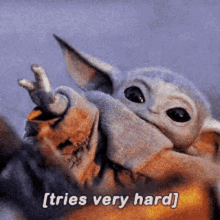Welcome to 2023! After a two week hiatus, I am once again back to maintain my title as Amazon’s Worst Affiliate Marketer. For a brief period of time this title filled me with deep shame. I have decided this year to lean into it. I embrace my badness at compelling you to buy things on Amazon!
This is an excellent segue into this week’s conversation. This week, let’s talk about doing your very best.
Throughout the course of your career you will discover that some of your efforts will give outsized results. At some point in your career you will do your very best work. For example, a friend of mine was part of the team that made the pinball game that shipped with Microsoft Windows. Not only do lots of people hold that up as the gold standard for many subsequent pinball games, it was arguably one of the most played games on the platform by virtue of it being bundled with the operating system.
Every game that my friend worked on afterwards probably had fewer players and also was less well distributed. You could make the argument that every other game he has shipped afterwards has paled in comparison to that shining gem. I bring this up because once you have had a certain level of success in your career, you will find that it is hard to replicate. Note: There are lots of better examples of this in the games industry, but if I am going to throw someone under the bus, I want to be able to call them up and apologize to them for it.
There are a lot of examples of this outside of games. It certainly applies to startup founders. Every once in a while a startup founder will experience an outsized exit, and then spend a considerable amount of time trying to replicate it. People will apply some sort of cognitive bias that amazes me. “I did this one incredible thing once, which means I can do it a dozen times more with a high degree of certainty”.
I always make the statement that I think that a successful founder’s second startup is likely their worst because they probably did not internalize why their first one was successful.
Let’s focus on games again for a moment. Games are very much a hits-driven business. Building hit games is hard. I was fortunate enough to have been making games from 2001 to 2005 in early mobile where the platform limitations meant you could make a lot of games with very small teams. This helped me to figure out my hit generation potential as a game creator. With 30 shipped titles, I have had six excellent successes. I can confidently believe that my hit rate is one in six. Yes, I know the number above suggests it is one in five. I also know that you want to be cautious in measuring success and I would like to leave some margin for improvement.
If you look at that math, what that meant is that every hit game title needed to pay for itself and five other titles for our studio to stay alive. That held true for early mobile for the years where mobile carriers were taking 500 games a year. They decided to reduce that to 100 games a year, which reduced the number of games we could release as an independent studio that co-published some of our titles. I have spoken elsewhere about this and how it eventually led to us shutting down our studio.
It is important to understand the economics of success and the economics of failure in your current role. It is also important to understand that sometimes you will have outsized successes in the course of your career.
Every once in a while I run into someone who has had an early and outsized success in their career. I engage with them carefully until I have a good sense of what they learned from that success, if anything. It is my belief you can always recreate your career successes under carefully controlled circumstances. If you have not learned enough from your success, and possibly subsequent failures, then I am not sure that you are operating under carefully controlled circumstances.
As you tear into your 2023 workload, ask yourself what success looks like. Ask yourself some hard questions.
Are you trying to exceed your previous career success?
Are you working with someone who has a previous success that they need to exceed?
Are the circumstances for replicating that success carefully controlled?
These are hard questions to answer, especially if you are only asking yourself. I know this from experience. Early in my career I did not think enough about these things, and I believed that continued and increased success happened just by showing up and working really hard.
I now know that there are lots of other factors that contribute to success, and some of them are outside of my control. Understanding what you can and cannot control will help you be successful, and it may also help you realize this year might not put you on the leaderboard for “best professional outcome”.
Thank you for reading along! If you are looking for some actual actionable advice on how to be successful, I encourage you to read the-cheerfully-Amazon-affiliated-linked-book: The Power of Habit. I have recommended this book to two people I currently work with, and I also cheerfully shove this book into every professional book club in which I participate. Helping think about your habits will help you with your success. Consider this your call to action to click this link and buy this book. Otherwise, I will continue to gloat about my place at the top of Worst Amazon Affiliates.
I am looking forward to many more conversations this year!
